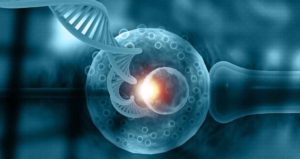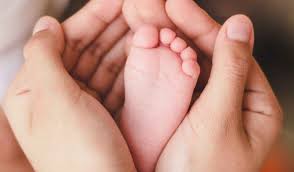Why Calcium Is Important for a Pregnant Woman
Calcium is an essential nutrient that helps all living beings in a great way. When a human being become pregnant, then it becomes more important to consume calcium so as to keep the growth of fetus normal. In pregnancy, calcium intake is very important. Moreover, if there is any deficiency in calcium during pregnancy, it can harm both the mother and the child. Thus consumption of calcium at daily basis through foods is very much important.
Calcium Is Essential: Do You Know Why?
If a mother does not get proper calcium diet during her pregnancy then this can create problems and potentially put her bones at risk. Fortunately, most women are able to avoid bone problems during pregnancy. However, this is not necessary as they are getting as much calcium they should. Luckily for women pregnancy increases the body’s ability to absorb calcium especially during the final 20 weeks.it is the time when baby needs most calcium for growth. Also, the extra estrogen produces during pregnancy helps protect a woman’s bone. But calcium is important for more than just the bones
Now, if you want to know the necessity and importance of calcium intake during pregnancy in details keep on reading.
Calcium Makes Bones and Teeth Strong
Calcium is an essential nutrient that keeps our bones and teeth strong. It is a mineral and is one of the most abundant in the body.
- Our body continually removes some small amounts of calcium and replace with new calcium which can be termed as a bone remodeling process. If the body removes more calcium from the bone than it replaces, they slowly become weak and more prone to breaking. Eating a diet rich in calcium will allow the body to deposit calcium in the bones so that they stay strong.
- Children and teens, who eat calcium-rich foods, build up stores for calcium in their bones which helps them to keep their bones strong for life. By getting lots of calcium when you are young, you can make yourself sure that your body does not have to take too much from your bones.
- Bones have their own calcium bank account so keep on eating calcium-rich food and start depositing as much calcium as you can. Deposition of calcium during tween and teen year helps to reach your peak bone mass. By the end of the teen years, the account closes and you can’t add any more calcium to your bones. What is already stored before will help you in keeping your bones healthy.
- Bone calcium is also used as a storage area to release calcium into the bloodstream when it is needed. Calcium is needed for so much more than bone health, though. Eating calcium-rich foods makes it possible for our body to achieve optimal nerve transmission, blood clotting hormone secretion, and muscle transmission.
- During pregnancy, the body of women has to tolerate more pressure due to the growing fetus in the ovary. In order to keep the bones functional and ideal, calcium consumption thus become so much important.
Baby Growing Inside the Body Needs Calcium Too
When a lady becomes pregnant then she doesn’t eat for herself only; she eats for two people. The growing fetus inside her body gets all essential nutrients and vitamins from her. Keeping this in mind, one can easily understand that the demand for all essential nutrients ought to rise and calcium is not out of the list. We need sufficient amount of calcium for maintaining the bone strength. Calcium intake during pregnancy is particularly important for the development of the foetus skeleton.
Your Baby Needs Calcium
Your baby meets its calcium needs by absorbing it from your body, particularly towards the third trimester. On an average, the foetus demands 30g of calcium by the end of gestation.When you are pregnant your developing baby needs to grow strong bones and teeth. It also lets your baby grow strong heart, muscles, and nerves as well as develops a normal heart rhythm and blood-clotting abilities. In the foetus, calcium is crucial for strong dental growth, aids in the nervous system and helps in the formation of muscles of the baby.
Researchers have seen that during pregnancy the baby itself need 50mg of calcium daily and the requirement reaches 250gm per day during the last few weeks.
Calcium Helps to Avoid Preeclampsia
Calcium deficiency can cause preeclampsia in the mother. This leads to high blood pressure and the presence of a huge portion of protein in the excrement. Moreover, this can cause reduce the flow of blood toward the fetus leading to low birth weight or preterm birth. If this disease remains untreated then it can cause permanent damage to the mother.
What Is Preeclampsia And How Is It Caused?
Preeclampsia produces a very poor outcome for both mother and the infant. There may be a breakdown of the red blood cells, kidney dysfunction, impaired liver function or visual disturbances. It usually occurs after 32 weeks of pregnancy and if occurred earlier then it is associated with worst outcomes.
Women who have preeclampsia are likely to have a heart disease or stroke in the later part of their life.
There is no definite cause that how preeclampsia occurs, it depends on a number of factors such as immunologic factors, abnormal placentation, dietary factors such as areas where calcium intake is very less, environmental pollution and women who have long-term blood pressure are likely to have 7 to 8 times higher preeclampsia than other normal women. Calcium supplementation of at least 1 gram per day is needed for pregnant women which will help in preventing preeclampsia whose dietary consumption is low.
Thus, this is very much important to intake green vegetables to maintain the supply of calcium in the body.
Risk of Hypertension Gets Reduced
Calcium can control hypertension. In addition to building and maintaining healthy bones, calcium also aids muscles contraction and lowers blood pressure. In fact, consuming a diet which is rich in calcium, along with other minerals such as potassium and magnesium is recommended for reducing blood pressure.
Uses Of Calcium
- Calcium reduces blood pressure because it plays a major role as a mediator in the constriction and relaxation of blood vessels.
- Consuming a calcium deficit diet also increases the concentration of calcium ion the intercellular fluid. This activates both the active form of vitamin D, vitamin D3 and the parathyroid hormone resulting in an increased calcium concentration in smooth muscle cells. This shifts in calcium concentration increases the vascular resistance, raising blood pressure.
- When you eat leafy vegetables for calcium, it maintains the thickness of blood and let the blood vessel’s walls to relax. Moreover, the fibers present in those vegetable helps indigestion.
Some High Sources of Calcium
Getting enough calcium during pregnancy and after your baby is born is very necessary. It will keep your baby’s bones strong and keep your bones strong too. Almost 99% of the calcium is stored in the structure of the bones and teeth. Some of the foods which contain calcium are.
- Yogurt is an excellent source of calcium. Low-fat yogurt has higher calcium.
- Almonds are the highest in calcium as one ounce contains 8% calcium.
- Sardines and Canned salmon are also a good source of calcium. They provide high-quality protein and omega3 fatty acids.
- Dairy products like milk and cheese. Parmesan cheese has most calcium with 331mg per ounce.
- Green leafy vegetables like broccoli and collard greens etc.
- Cereal with calcium added.
- Tofu with calcium added.
- Seeds, as they are tiny nutritional powerhouses. Some of them are high in calcium such as poppy, sesame, celery.
Make sure you get enough calcium and be sure to include foods which have enough calcium which will help you get 3 to 4 servings of calcium per day. Try to have calcium rich food at each meal and snack during pregnancy as your body uses calcium when eaten at different times of the day.
If you think that you do not get enough calcium in your diet then go and speak to your healthcare provider. They will help you decide if a calcium supplement is needed, how much is needed and which supplement is right for you.
Now, reading these details one can easily understand the importance of calcium during pregnancy. Moreover, one can understand that eating green and leafy vegetable will provide desired amount calcium because we can’t produce it on our own.




Be First to Comment